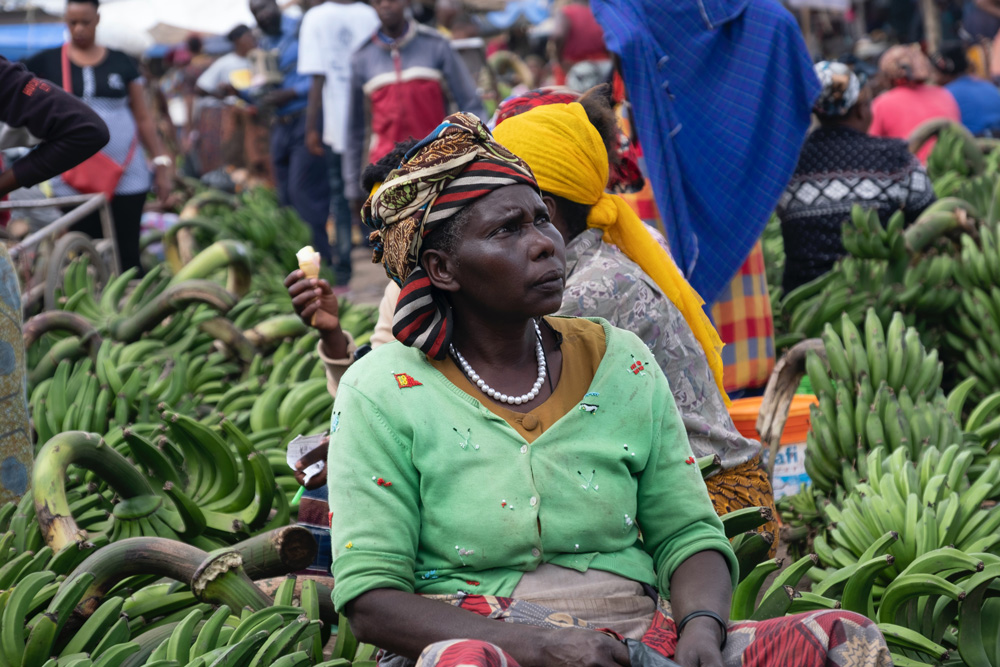The coronavirus pandemic has taken a tight grip on the African food industry. In Eastern Africa, government movement restrictions and subsequent supply chain disruption caught most businesses and farmers cooperatives off guard, elevating risks of poverty and hunger. At the same time, food businesses are innovating, becoming more resilient and adapting quickly to the constant challenges posed by the COVID-19 crisis.

The first part of this series shared experiences from farmers and cooperatives. This piece dives into the challenges and opportunities the pandemic created for food companies. Inclusive Business Sweden conducted a survey and facilitated an online dialogue as well as interviews with several food companies based in the Eastern African region, to understand how they are coping with the crisis and to provide a space for discussion, experience sharing and collective learning. Sylvia Masiga (Peak Value Industries, Uganda), Bertha Mamiro (Tanzania Industrial Research and Development Organisation), Alexander Bombom (Bomvitae Agro Industries Limited, Uganda), Khadija Mohammed (Kwanza Tukule Ltd, Kenya) and Shira Mukiibi (BioInnovate Africa – East Africa), have all shared their insights and experiences.
The new challenging reality
Even though national restrictions to control the spread of the virus differed between Eastern African countries, less restrictive in Tanzania but a countrywide lockdown in Uganda, it is not a surprise that the coronavirus pandemic and its effects impacted business operations of all of the respondents. In addition to health risks, movement restrictions and limitations on public and social gatherings added pressure to the daily operations of food companies.
Despite the fact that productivity at farm level is slowly getting back to normal (or even improving in some cases), movement restrictions within and between countries made the supply of raw material and distribution of food products particularly challenging and expensive. Governments are now restarting the movement of goods by providing special permits, but companies report that the effects of the lockdowns are still noticeable. Because it is more expensive to move goods from rural to urban areas, prices of agricultural produce has, in many cases, risen, affecting the quantity and quality of raw material that food companies and processors can afford to purchase.
Restrictions on gatherings impacted food companies in two ways. On one hand, closure and restricted operations of schools, restaurants and hotels have significantly reduced the number of clients for food companies. According to Khadija from Kwanza Tukule, a B2B supply chain operator for street food in Kenya, their revenues went down dramatically, especially at the beginning of the pandemic, when their main clients (street vendors and small-scale restaurants in Nairobi), had to put their own businesses on hold.
Shira Mukiibi of BioInnovate Africa, reported that Recycler Ltd, a Tanzanian company she works with, has seen its supply interrupted since they collect organic waste from hotels to feed black soldier flies that are used to convert biowaste into animal fodder.
On the other hand, restrictions on crowds have also affected food companies’ workplaces, many have to keep parts of their labour force at home, hence operating with less capacity, and in some cases, laying off their workers. Many companies are facing a double challenge of declining income and accessing raw material. For instance, Sylvia Masiga of Peak Value’s, a food processor in Uganda, told that lack of cash is threatening long-lasting relationships with some of their suppliers who are not willing to let food companies pay on credit until the situation comes back to normal.
Innovating as a way out of the crisis
Looking ahead, the responses from our survey indicate that, besides the financial support (56%), companies are keen on modernizing their marketing and distribution channels to directly reach farmers and other suppliers (22%) and in developing new food products (22%) that are made from locally sourced grains as opposed to imported grains from neighboring countries.
Despite the challenges and problems, companies have kept an active and problem-solving attitude. Scarcity of raw materials, personnel and clients free time for innovation, which has come in the form of new products as well as management approaches at the organisational level.
For example, Alexander from Bomvitae Agroindustries Limited (BAIL) and Bertha from Tanzania Industrial Research Organization (TIRDO), are using their knowledge and facilities to process ethanol for hand sanitizer made from sorghum agricultural waste and fermented green cassava starch in Uganda and Tanzania.
Peak Value Industries in Uganda improved the quality of their food products to match national standards. As a result, four of their products were certified with Q-Mark of the Uganda National Bureau of Standards. Sylvia says that this has allowed the company to gain official recognition and increase competitive advantage against bigger brands on the same market.
